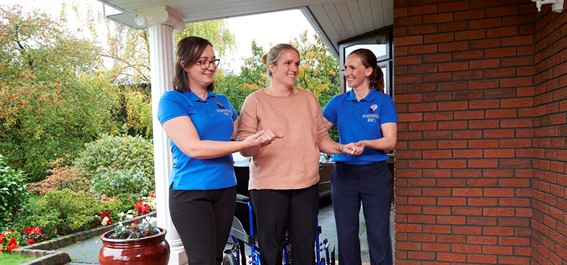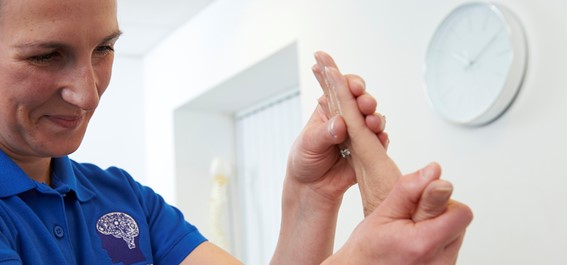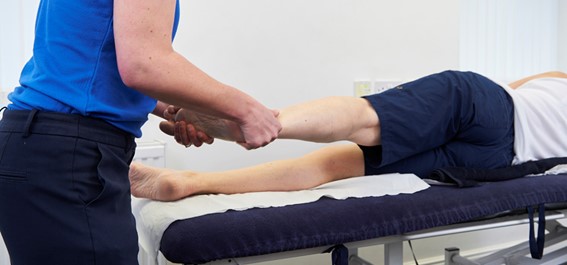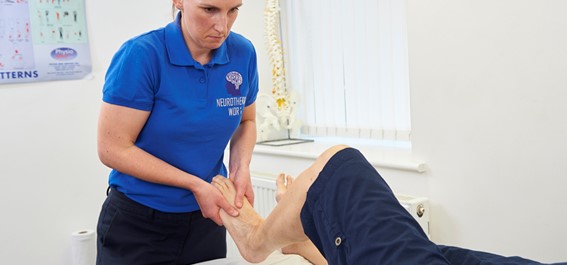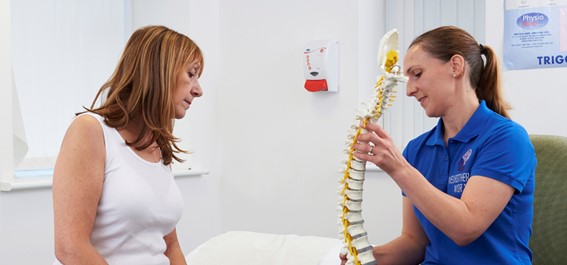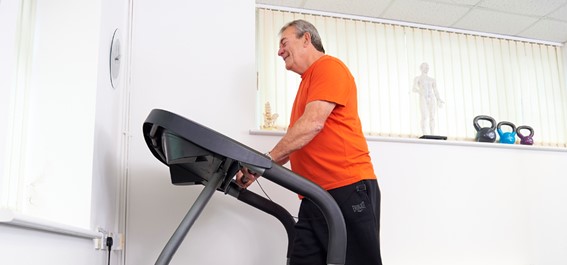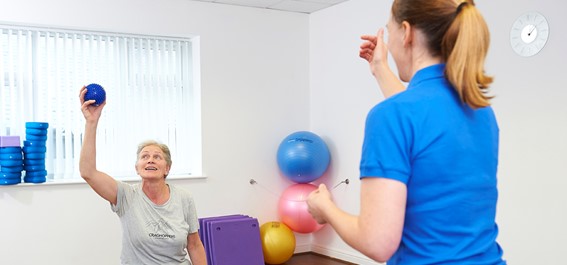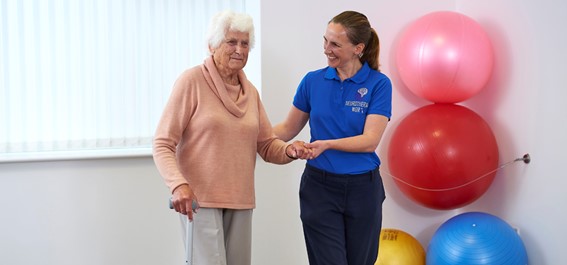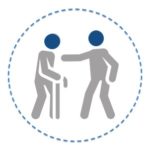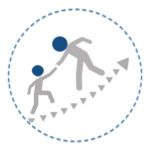

Motor Neurone Disease
Motor Neurone Disease (MND) is a condition that causes the degeneration and loss of function in the motor system of the central nervous system. Motor neurones are nerve cells which control the function and activity of our muscles by transmitting messages through the brain and spinal cord (central nervous system) and the peripheral nervous system (nerves outside of the central nervous system). Both sets of neurones are affected by this condition. This results in progressive weakness and wasting of the muscles.
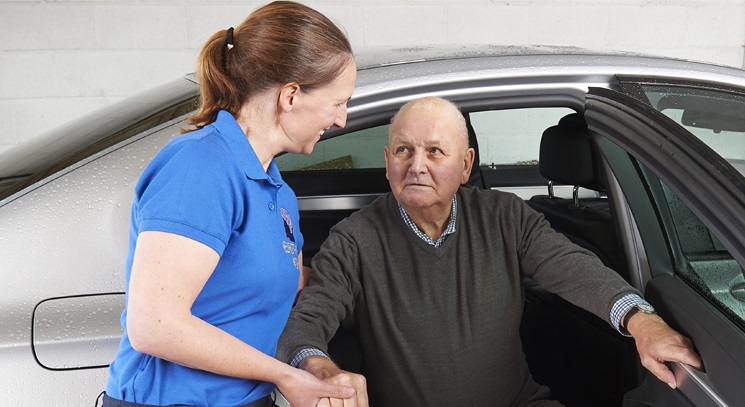
The different types of Motor Neurone Disease are:
Amyotrophic lateral sclerosis (ALS)- Most common form of MND and common symptoms are muscle wasting, muscle fasciculations, muscle spasms, speech/swallow problems
Progressive muscular atrophy (PMA)– Tends to progress more slowly than ALS. Some people with PMA go onto develop ALS
Progressive Bulbar Palsy (PBP)– Affects muscles in the throat, tongue, facial weakness therefore causes problems with speech and swallow
Primary Lateral Sclerosis (PLS)– Rare form of MND. People with this form may experience spasticity but do not suffer from muscle wasting

Symptoms of Motor Neurone Disease
People who suffer from MND may experience the following symptoms:
- Muscle wastage
- Muscle weakness
- Muscle fasciculations (involuntary contractions of part of a muscle which is often seen as flickers of movement under the skin)
- Pain
- Stiffness at muscles and joints due to wastage and weakness
- Reduced mobility
- Muscle spasms
- Reduced ability to carry out functional tasks such as opening jars, carrying objects
- Breathing problems in later stages of the condition due to weakness at the respiratory muscles
- Communication and swallowing problems
How our Physiotherapy Helps with Motor Neurone Disease
Although this disease is progressive, symptoms can be managed to achieve the best quality of life possible. At Neurotherapy Worx we can help by:
- Providing Neurological physiotherapy input to help maintain movement, mobility and function
- Provision of a positioning and stretching plan to help you manage joint and muscle range of movement
- Assessment and provision of aids to help with your mobility
- Liaise with other health care professionals that are involved within your treatment/care and offer advice and input where needed.
- Breathing exercises
- Education and advice for family and carers on helping you manage your condition
- Referral to other services such as an orthotist (splinting/support), wheelchair services, driving assessment services

How Does Neurotherapy Treatment Work?

We hold a brief conversation with you about what problems you struggle with and how you need help
We capture your personal details, discuss the costs and timings and arrange an appointment
During your first appointment, you share your goals with us and we conduct a physical assessment
We work with you to build a personalised treatment plan, during a scheduled period of intervention
We may prescribe some exercises to help you to address weakness, move more efficiently and improve your quality of life
We regularly review your progress and adjust your goals as you make improvements
What’s a Treatment Plan?
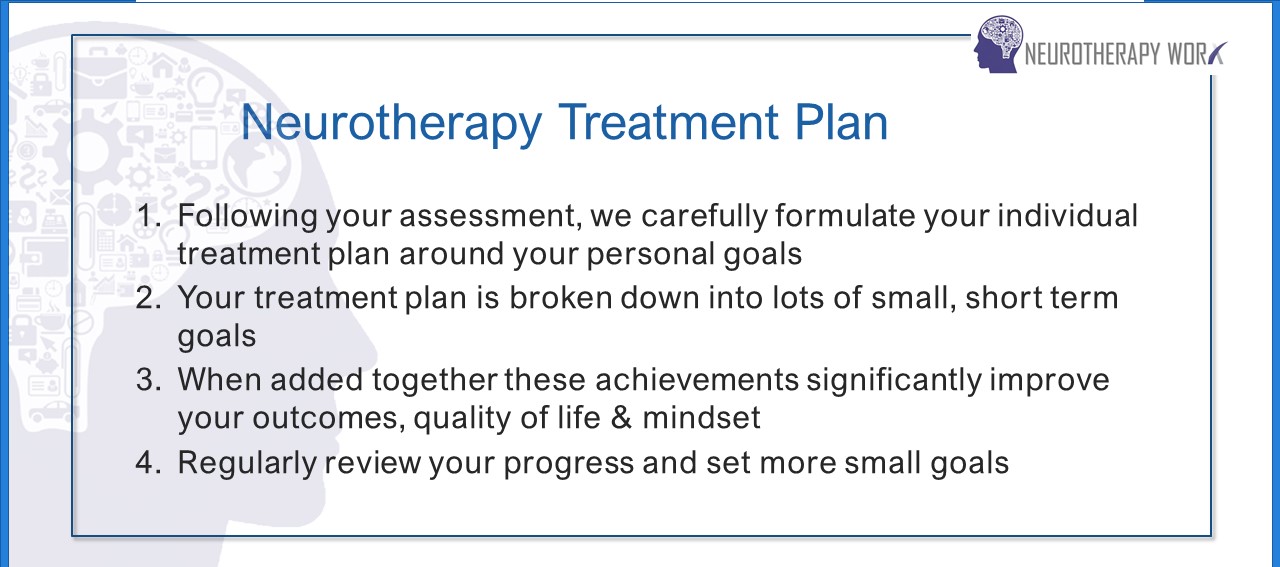
Why Work With Our Team?
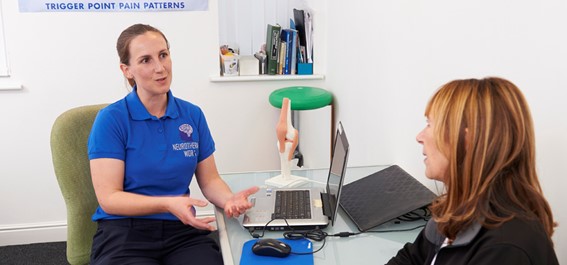
Patient Centric
Motivational, personalised and tailored care, based on your individual goals and fully adapted to your abilities
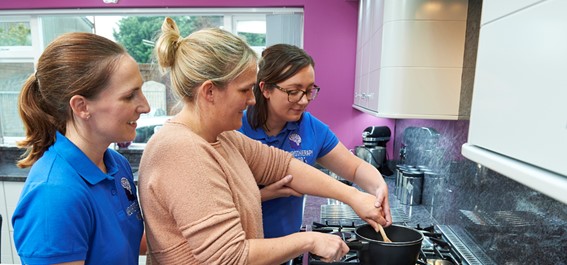
Multi Skilled Team
Our expert team work together when required, fully communicating to deliver the fastest and best outcomes

Fully Experienced
With extensive, hands on practical career experience of working in hospitals, clinics and the community
Why Trust Us for Your Treatment?

Qualified Specialists
Fully HCPC, CSP, Physio First, CPD, DBS accredited with proof of up date memberships upon request. We’re member of the aquatic therapy association of chartered physiotherapists (ATACP) and association of paediatric chartered physiotherapists (APCP) and association of chartered physiotherapists in neurology (ACPIN).

Innovative Therapies
By staying ahead of cutting edge industry treatments, we bring you new and unique support and options. We believe in staying ahead of technical advances within our industry to deliver the best levels of care. We research and use the latest medical devices to support our neurological therapies. See our therapies pages for more information.

Trust Us with your Data
We’ve invested in the latest, GDPR compliant IT systems for accurate patient record keeping. Our systems match the stringent data protection standards within the healthcare industry, enabling us to communicate fluidly with your other care providers and deliver collaborative care.
Home Visits
Our friendly team visit you in your home. Following our assessment, we support you with activities of daily living that you would like to carry out more easily. Our team are enhanced police checked.
Attend Our Clinic
Attend our fully equipped clinic for a full assessment & tailored treatment plan. Specialist equipment is available to support your activities & develop your skills, enabling you to achieve your personal goals
Neurological Problems We Help With
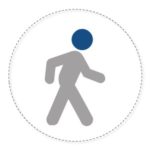
Walking Issues
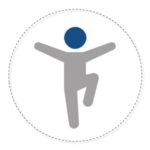
Balance Problems

Coordination Problems

Visiospatial Disfunction

Sensory Loss
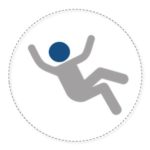
Falls
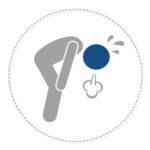
Fatigue

Pain

Spasticity
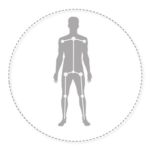
Body Alignment

Range of Movement

Reduced Muscle Tone
Neurological Conditions We Support
• Alzheimer’s Disease
• Balance Problems
• Brain Injury
• Brain Tumours
• Cerebral Palsy
• Dementia
• Functional Neurological Disorder
• Guillain-Barré Syndrome
• Hereditary Ataxias
• Motor Neurone Disease
• Multiple Sclerosis
• Muscular Dystrophy
• Parkinson’s Disease
• Peripheral Neuropathy
• Spinal Deformity and Injury
• Stroke





